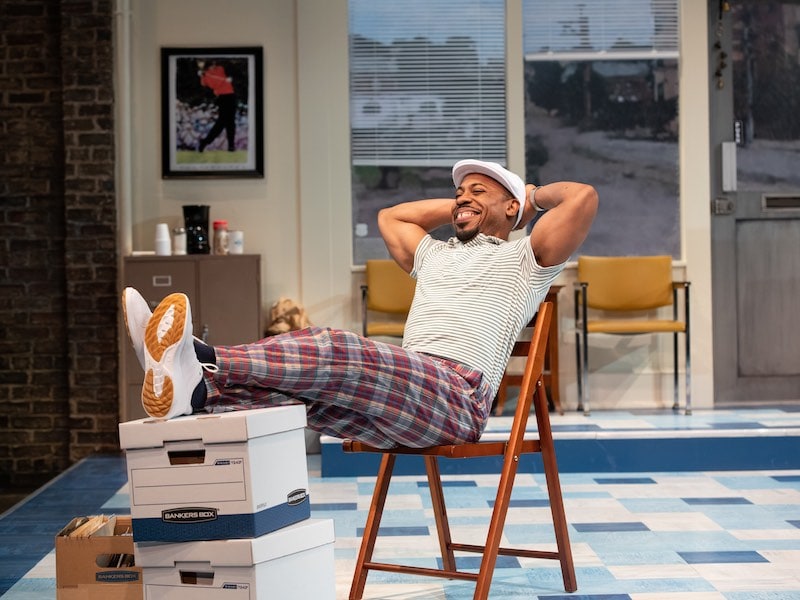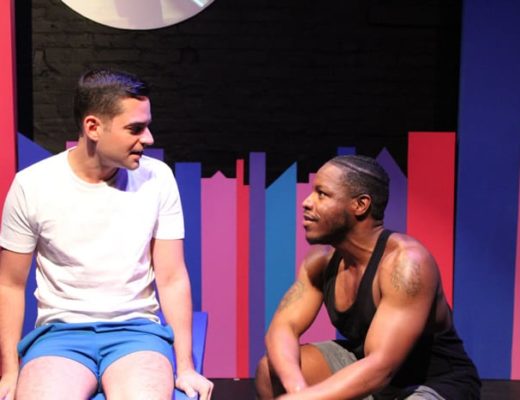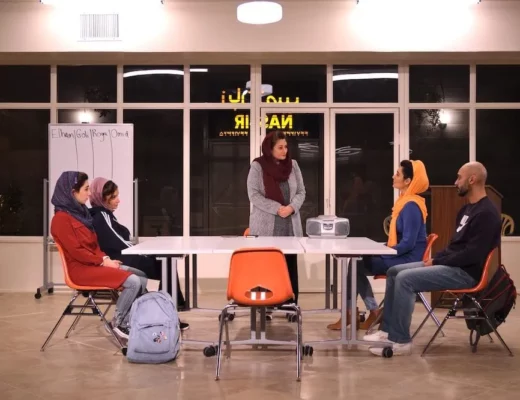By Daarel Burnette II
This article was originally published in DC Theater Arts here.
August Wilson gifted American theater with some of its most dynamic and animating Black characters whose wisecracks, soaring speeches, and knockdown fights deepened our collective understanding of the many ways racism wrecks Black communities.
So it was unsettling to watch the mismatched cast under the direction of Reginald L. Douglas work their way through Wilson’s Radio Golf, playing this month at Round House Theatre in Bethesda.
Roosevelt Hicks, masterfully played by Ro Boddie, jabbed.
Mame Wilks, passionately played by Renee Elizabeth Wilson, prodded.
Sterling Johnson, convincingly played by Kevin Mambo, hustled.
And Elder Joseph Barlow, wittily played by Craig Wallace, griped.
But in each scene, to each antic, Harmond Wilks, an aspiring politician and real estate developer played by Jaben Early, seemed numb to just about every stimulus tossed his way.
That made Radio Golf a bit of a letdown.
Radio Golf is the last play Wilson wrote before his unexpected death in 2005.
It’s also the least produced and one of the more complicated works in his ten-play American Century Cycle, which explored the lives of Black residents in the Hill District in Pittsburgh. But while the business dealings in Radio Golf can sometimes be hard to follow, its overall theme still resonates today when so many Black neighborhoods undergo rapid change.
Radio Golf centers on Harmond Wilks’ decision to run for office while also trying to secure a federal grant to redevelop a blighted block in the Hill District. But he and Roosevelt, his development partner, run into trouble when he learns that one of the houses on the property was seized by the city in an underhanded way.
The play explores themes of access and opportunity and who benefits and suffers from Black capitalism.
And it’s clear the majority of the cast have a deep understanding of their character, their convictions, and what exactly would spark rage and passion.
Ro Boddie, who plays Roosevelt, has a vocal range and kinetic energy that leaps from the stage and (somehow) manages to build as the plot thickens and the stakes for his livelihood are raised. Kevin Mambo delivers a memorable version of Sterling that humanizes often stereotyped poor Black men trying to make a living. And Craig Wallace steals the show with his version of Elder Joseph Barlow. His nonsensical rants, pauses, side-eyes, and limped entrances and exits are perfectly timed and laugh-out-loud funny.
I appreciate the detailed and realistic set, designed by Meghan Raham: The early-era Mac on the desk, the scattered momento-filled boxes, the CD-tape player (where’d they find that?), the backdrop of the Pittsburgh skyline, and the rusty tin ceiling with the faded motif.
And costume designer Moyenda Kulemeka plucked the sort of flashy three-piece suits it’s easy to imagine Black businessmen would wear in the mid-1990s.
But other choices made by the creative team kept jolting me in and out of 1995 Pittsburgh and 2023 Bethesda. The Pittsburgh Post-Gazette the characters read from, the crumpled deeds slapped on Harmond’s desk, and the Crayola-colored files yanked out of the filing cabinets didn’t at all look authentic. Sometimes the characters looked lost on stage, disengaged from the dialogue, picking actions that confused rather than clarified their motivations.
And then there’s Harmond. Early, who plays Harmond, exudes the look of young Black politicians who were elected in the mid-’90s and early 2000s to become some of America’s first Black mayors. He’s tall, muscular and has a charming smile that’s hard to look away from. But looks can only get you so far in an August Wilson play, which taps into so many emotions that you become suspicious of anyone on stage who’s not in some way reacting.
For an aspiring politician who’s launching a multi-million-dollar project, Harmond’s monotone verses, stiff actions, and frequent hands-on-hips stance doesn’t make any sense. Does he really care?
He leans back and stares blankly when Elder Joseph Barlow details his relationship with the American flag or when Sterling shoots off a series of ideas on how to fix the traffic and improve the policing. And when Roosevelt yelps and does a praise dance to a landed business deal, Harmond can’t match his energy.
Because Harmond almost never leaves the stage and he narrates so many of the pivotal parts of this play, his lack of stimulus can be confusing for those trying to grasp the direction of the play, which, in some parts, is bogged down with lots of legalese.
There’s a reason August Wilson’s work has been replicated thousands and thousands of times. His plots are engrossing. His characters are relatable. His dialogue is masterful. Round House’s attempt at Radio Golf is an admirable one that has room to improve.





No Comments